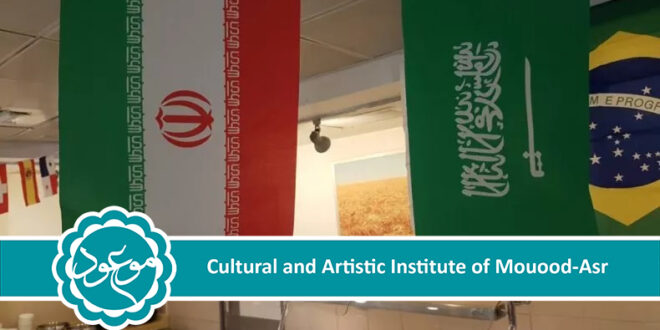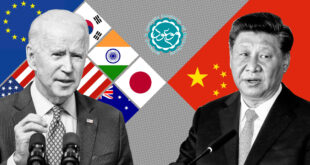According to Mouood, quotes by newsweek:
In Reversal From Trump, Biden’s Envoy Encourages Arab Partners to Talk With Iran
In a reversal from the diplomatic front of former President Donald Trump’s “maximum pressure” approach, President Joe Biden’s envoy on Iran has encouraged regional countries to engage with the Islamic Republic.
“Engagement among countries in the region, engagement with Iran, de-escalation, that’s all things that we would encourage and we think that it’s good for stability in the region,” U.S. Special Representative for Iran Robert Malley said during an online talk Wednesday with the Carnegie Endowment for International Peace.
Malley made the comments after announcing he would be traveling to the Middle East to visit Saudi Arabia, the United Arab Emirates and Qatar to discuss the ongoing negotiations aimed at bringing Washington and Tehran back into full compliance with a 2015 nuclear agreement also signed by China, France, Germany, Russia and the United Kingdom as part of a group known as the P5+1.
The deal, officially known as the Joint Comprehensive Plan of Action (JCPOA) was abandoned by Trump three years later as he implemented tight sanctions that the accord was designed to lift from Iran in order to incentivize the country to curb its nuclear production, and the U.S. rallied regional partners in an effort to isolate the Islamic Republic. Iran has since stepped up its enrichment, which it maintains was strictly for peaceful purposes, and regionals tensions have flared.
But even as the U.S. and Iran struggle to once again establish common ground after six rounds of indirect talks facilitated by other nuclear deal signatories in the Austrian capital of Vienna, quiet diplomacy has taken root between Iran and Arab states across the Persian Gulf, most notably with Saudi Arabia.
Malley said there have been four rounds of talks between Iran and Saudi Arabia and though he did “not want to overstate what’s been achieved” between the rivals, “the fact that they’re talking, the fact that the Emirates and Iran have not just been talking but dealing with one another, those are things that we not only welcome, we think that’s a good thing if it could be accompanied by a de-escalation, of course.”
He emphasized that Washington was still monitoring to see how Tehran reacted to expanding ties in the region before making a final assessment.
“We still need to see how Iran, what its policies will be in Iraq, in Yemen, in Syria and Lebanon, in terms of not continuing on the path of encouraging their proxies and their allies to engage in acts of violence,” Malley added, “so of course, the proof will be in what happens.”
Overall, the U.S. diplomat said the current effort to return to the nuclear deal was taking place “in a more complicate environment” than when the deal was first signed in 2015 and adopted earlier the following year. This was not only due to Iran’s resurgent relations with its neighbors, he argued, but also Israel’s open entry into the region as part of the Abraham Accords that normalized the close U.S. ally and staunch Iranian archfoe’s relations with the UAE, Bahrain, Sudan and Morocco in a process overseen by the Trump administration.
He said such developments “can in fact lead to greater de-escalation if we use them in a proper way and create more incentives to address the nuclear crisis with Iran.”
And yet the effort to revitalize the JCPOA appears to be at a standstill.
Malley also said that, while it was the Biden administration’s assessment that the U.S. team was “making real progress” over the course of the previous six rounds, the latest of which took place in June, new circumstances have emerged in Iran with President Ebrahim Raisi taking office in August.
“We’re going to have to see whether what we were negotiating and thinking that we’re making real progress towards the resumption of mutual compliance with the deal, whether that is still the case,” Malley said.
He added that the longer the pause in discussions has drawn out, the less hopeful the administration has been.
“Every day that goes by we’re getting a piece of Iran’s answer,” Malley said. “Every day where they are not coming back to the table, every day where they’re making statements about how little was achieved in Vienna, which is what the current team is saying, is telling us that this is a team that may not, in fact, be prepared to come back into what we would consider, what the rest of the P5+1 would consider a mutual return to compliance with the JCPOA.”
As such, the U.S. has begun to prepare for the eventuality that the JCPOA may be left to die.
“We have to prepare for a world, which we’re doing now in consultation with our partners in the region…where Iran doesn’t have constraints on its nuclear program and we have to consider options to deal with that, which is what we’re doing even as we hope that we can get back to the deal, which is by far our preference,” Malley said, “but as I said, Iran is giving us its answer by what it’s doing and not doing every day and we need to take that into account.”
Iran, for its part, has signaled concern that it was the U.S. that was not serious about its commitment to getting back to the JCPOA it unilaterally left. While Washington may have alleviated its attempts to ostracize Tehran totally, Trump-era sanctions remain in place, continuing to disrupt Iran’s foreign trade ties.
Iranian Foreign Minister Hossein Amir-Abdollahian said Tuesday following a meeting with National Council of Switzerland President Andreas Aebi that the Raisi administration was in the process of finalizing its decisions on returning to Vienna.
“Iran’s actions will be proportional to the deeds and measures of the other parties,” Amir-Abdollahian said, according to the Iranian Foreign Ministry.
 Mouood Mouood English Edition
Mouood Mouood English Edition




